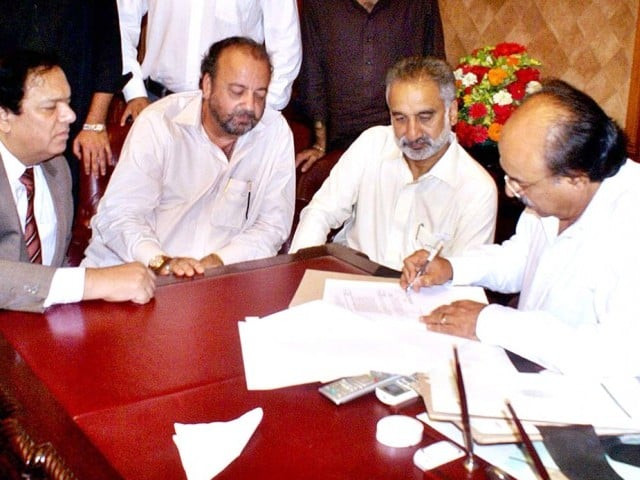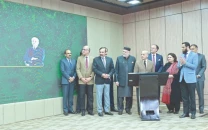System of slavery?: Local govt bureaucrat tries to garner support with Sukkur convention
The commissionerate system was brought in by dictators, says Daniyal Aziz.

In order to condemn the government’s decision to revive the Comissionerate system, an entity that describes itself as the All Pakistan Local Government convention organised a public gathering in Mohammed Bin Qasim Park in Sukkur on Wednesday afternoon.
The convention was headed by the former district nazim of Sukkur, Syed Nasir Hussain Shah, the former taluka nazim of Larkana, Qurban Abbasi, and the former National Reconstruction Bureau chairman Daniyal Aziz. All of them described the move as a “U-turn to slavery”.
Aziz, in particular, strongly criticised the decision to scrap the 2001 local government system in favour of the 1979 local bodies system. In his speech to the assembled people (who came mostly from Sukkur and Ghotki districts), he said that the Pakistan Peoples Party’s (PPP) motto was ‘Power to the people’. But President Zardari, ‘following the advice of his friends’, has revived the Commissionerate system in Sindh, said Aziz, adding that this particular system was introduced by General Zia-ul Haq, the same man who had hung Zulfikar Ali Bhutto.
According to Aziz, the 2001 local government system aimed to devolve power to the grass roots level and the system had proven effective. It was a model system for Pakistanis, Aziz maintained, because their problems were being solved right at their doorsteps by the nazims and councilors. By scrapping this system, the government has actually deprived people of their legitimate rights, he said.
Elaborating on the 18th constitutional amendment, Aziz noted that many ministries were transferred to the provinces and the funds worth billions of rupees would also be transferred to the provinces. “While we were trying to strengthen the local government system by providing more power to the districts, talukas, union councils, and nazims, the PPP government has placed all the funds under a few government servants instead of elected representatives of the people,” said Aziz.
He claimed these actions would slow down the pace of development because the government servants (such as commissioners and deputy commissioners) would not take advice from the general public on certain development works.
Aziz went so far as to say that the fact that people had gathered for the convention was a signal to the government that it should refrain from taking unconstitutional and undemocratic actions, otherwise they should, “Get ready to face the wrath of the people in the manner of protests in Egypt, Jordan, and Libya.”
Continuing with his comparison, he stressed that, “People of those countries grew sick of dictatorship and took to the streets. And in our country, the champion of democracy has gone back to the system of slavery.”
He was hopeful that the public gathering would influence the government to reverse its decision. If it failed to do so, then another public gathering would be arranged in Mirpur Khas on July 28.
This gathering itself, however, was only allowed with much difficulty since the night before the police had tried to disperse the workers busy preparing for the convention, even though the Sukkur administration had given it the go-ahead.
Published in The Express Tribune, July 21st, 2011.



















COMMENTS
Comments are moderated and generally will be posted if they are on-topic and not abusive.
For more information, please see our Comments FAQ